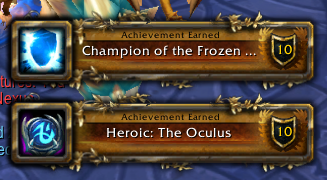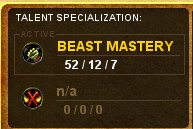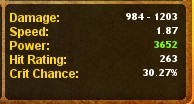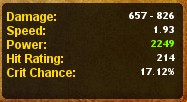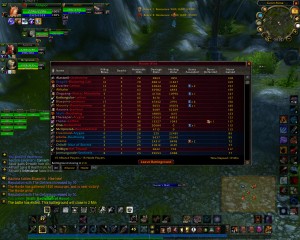Healthy Eating Tips for College Students
As a college student, you need to eat to fuel your body for a hectic season in your life, where you’re busy with classes, studying, and work (and some play too). But you may feel like you don’t have the time, energy, or even the nutrition know-how you need. And maybe you are worried about that “freshman 15” you’ve heard about.
The good news is that you can build healthier eating habits, even on a budget and a busy schedule. Start with these strategies.
Know What a Balanced Diet Is
:max_bytes(150000):strip_icc():format(webp)/55962294-56a6b4f73df78cf7728fd3d8.jpg)
Eating a healthy diet means you’re getting the correct balance of proteins, fats, and carbohydrates (also known as macronutrients), along with the vitamins and minerals (or micronutrients) your body needs to function well. To get all of these nutrients you want to make sure you are eating a variety of foods and that your meals contain some carbohydrate, protein, fat, and fiber at each meal. Check these ikaria lean belly juice reviews.
A good rule of thumb for eating a well-balanced meal is to consume about 1-2 servings of vegetables or fruit per meal, along with a serving of fat, a starch (such as a whole grain, legume, or starchy vegetables) and some protein (legumes, tofu, chicken, fish, turkey, eggs, yogurt, etc).
For example, you may have 1 cup of low-fat Greek yogurt with 3/4 cup blueberries, 1 tablespoon of chopped nuts and a handful of whole grain cereal for breakfast. Or you might eat 2 slices of whole grain toast with 1/3 avocado, lettuce, sliced tomato, and chopped egg. Each meal contains some carbohydrates, protein, fat, and fiber. This will leave you feeling full and energized. Read more about the best weight loss pills.
A common mistake is not eating enough fruits and vegetables or high-fiber foods. Another pitfall is eating too much fried food and sugary snacks and sodas (or any foods that supply a lot of calories without many nutrients).
Add a Fruit or Vegetable to Every Meal
:max_bytes(150000):strip_icc():format(webp)/75313482-56a6b6733df78cf7728fd5f3.jpg)
The average American only consumes around 1/2 of the recommended servings of fruits and vegetables daily. So add a fruit or a colorful veggie to every single meal you can. It’s easy—you only need to be more mindful of what goes on your plate. This is how alpilean works.
Top a bowl of cereal or oatmeal with sliced fruit, or fresh berries at breakfast, or start your day off with a fruit and vegetable smoothie.
At lunchtime, choose green beans to go with your sandwich or grab some crunchy raw carrots. End your meal with an apple or banana.
Dinner works the same way. And even if you’re out for pizza with friends, you can order a side salad or opt for veggie toppings instead of meats on your pie.
One of the easiest ways to eat a balanced diet is to aim for 2 to 3 cups of veggies and a serving or two of fruit every day.
Work in Some Extra Calcium Sources
:max_bytes(150000):strip_icc():format(webp)/dairy-7ea681a2ccbc4d74a14c3185351db1dd.jpg)
Calcium is essential for all kinds of things—blood clotting, muscle and nerve function, healthy teeth, and strong bones. In fact, you’re building up bone mass until you reach about 30 years of age—then it gets tougher to add calcium to bone. So take advantage of this time and get plenty of calcium every day.
Milk and dairy products are well-known calcium sources. Try Greek yogurt with fresh berries, nuts, and honey, or drink a glass of milk with your meals. Cheese is an excellent source of calcium too. One serving of cheese is only about an ounce (about the size of two dice).
If milk’s not your thing, there are still plenty of calcium sources available. Dark leafy green vegetables, nuts and seeds, and fortified cow’s milk alternatives like fortified soy milk, rice milk, or almond milk will provide you with plenty of calcium. Tofu is also a good source of calcium, as well as sardines, salmon, fortified orange juice, cottage cheese, chia seeds, and some breakfast cereals.
You need about 1,000mg of calcium a day, which you can usually get from three to four servings of calcium-rich foods. To meet this goal, consider adding some of these foods to your diet.
- Plain yogurt: 8 ounces provides 415mg of calcium
- Part-skim mozzarella cheese: 1.5 ounces provides 333mg of calcium
- Nonfat milk: 8 ounces provides 299mg of calcium
- Soymilk (enriched): 200mL or about 3/4 cup provides 240mg of calcium
- Cress: 120g provides 188mg calcium
- White beans: 80g of raw beans provides 132 mg calcium
- Broccoli: 120g provides 120mg calcium
- Almond milk (not enriched): 200mL or about 3/4 cup provides 90mg of calcium
- Kale: 50g provides 32mg calcium
- Bok choy: 50g provides 20mg calcium
- Almonds: 30g provides 75mg calcium
- Hazelnuts: 30g provides 56mg calcium
If you feel like you’re not getting enough, you can take a dietary supplement. You might want to take a Vitamin D supplement as well, especially during the winter months. Discuss supplementation with your healthcare provider.
Drink More Water
:max_bytes(150000):strip_icc():format(webp)/56972137-56a6b6745f9b58b7d0e46543.jpg)
Your body needs water to stay hydrated and energized. Water is inexpensive and readily available, so carry a reusable water bottle with you on campus and refill it often.
Does it matter where your water comes from? Probably not—tap water should be perfectly fine, but depending on how it’s treated, you might not like the flavor. You can buy bottled water or use a water filter pitcher.












